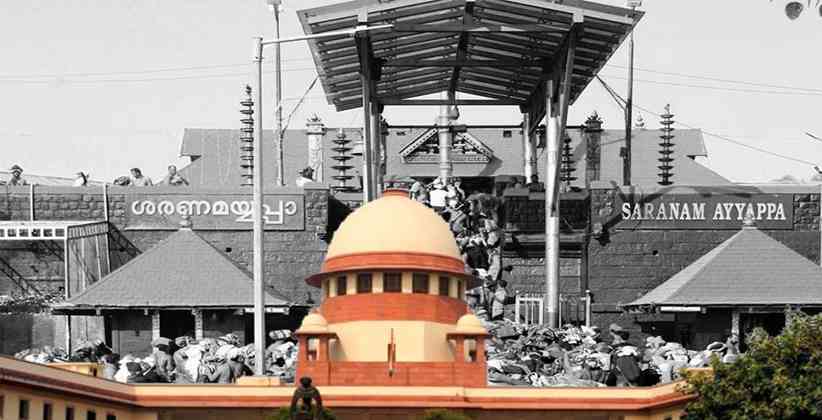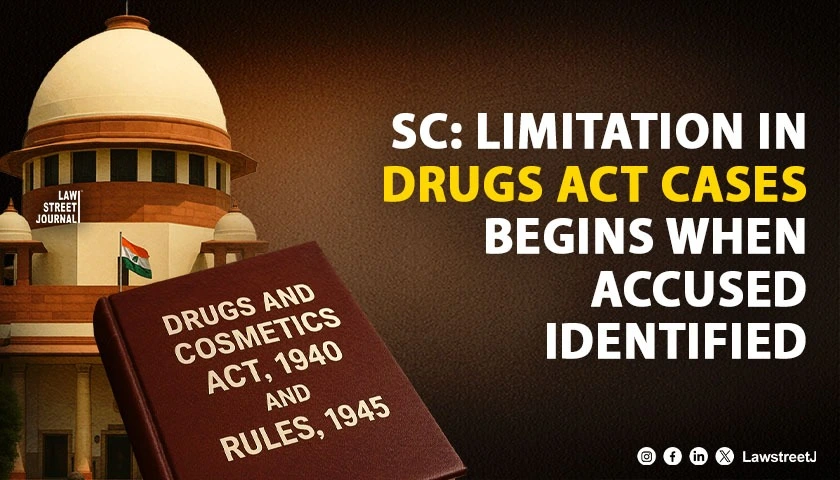A nine-Judge Bench of the Supreme Court headed by CJI had reserved its order on the maintainability of the reference of a question of law to a larger bench in a review petition of Sabarimala judgment on February 06, 2020, and for which order pronounced on February 10, 2020.
On May 11, 2020, the SC has given a detailed explanation for its order.
The Order authored by CJI held that there is no fetter on the exercise of discretion of the Supreme Court in referring questions of law to a larger bench in review petitions. Being a superior court of record, it is for the SC to consider whether any matter falls within its jurisdiction or not. Unlike a Court of limited jurisdiction, the Superior Court of record is entitled to determine for itself questions about its own jurisdiction.
It was also held that no matter is beyond the jurisdiction of a superior Court of record unless it is expressly shown to be so, under the provisions of the Constitution.
Background of the matter:
In the matter of Indian Young Lawyers Association and Ors. v. The State of KeralaandOrs. (famously Sabrimala judgment) ((2019) 11 SCC 1) the validity of Rule 3(b) of the Kerala Hindu Places of Public Worship (Authorisation of Entry) Rules, 1965 was challenged and direction was sought to permit female devotees between the ages of 10 to 50 years to enter the Sabarimala temple without any restrictions.
A Constitution Bench headed by CJI Dipak Misra, and comprising A.M. Khanwilkar, Rohinton Fali Nariman, Dr. D.Y. Chandrachud and Indu Malhotra, JJ had by a majority of 4:1 (Justice Malhotra dissenting) concluded that exclusion of women between the ages of 10 to 50 years from entry into the temple is violative of Article 25 of the Constitution of India.
Following this landmark judgment, several review petitions were filed. CJI Ranjan Gogoi, and A.M. Khanwilkar and Indu Malhotra, JJ were of the opinion that the scope of the freedom of religion guaranteed under Articles 25 and 26 of the Constitution needs an authoritative pronouncement by a larger bench of not less than seven Judges.
The contours of judicial review in matters pertaining to essential religious practices was another issue which was identified to be adjudicated upon by a larger bench. Sitting in the same bench, Justices Rohinton Fali Nariman, Dr. D.Y. Chandrachud had dissented and concluded that matter need not be sent to a higher bench. Subsequently, the review petitions of pervious Sabrimala judgment were adjourned for the determination of the questions by a larger bench.
Contentions of the Parties opposing reference to a larger bench:
Those who had opposed to this reference of questions of law to a larger bench had contended that hypothetical questions should not be answered by the SC and abstract questions of law without facts cannot be the subject matter of reference.
Another contention was that only appeals can be referred to a larger bench in accordance with the proviso to Article 145 (3) of the Constitution of India.
The Supreme Court based its reasoning on the difference between different between Civil/Criminal Proceeding on one hand and Writ Petitions on another hand (as a matter of fact, the review petitions before the 9-judge bench was a result of the Sabrimala verdict which was a Writ Petition) and held that,
[C]ivil proceedings and criminal proceedings dealt with in Part II of the Supreme Court Rules are different from Writ Petitions covered by Part III of the Supreme Court Rules. The exceptions carved out in Order XLVII, Rule 1 of the Supreme Court Rules pertain only to civil and criminal proceedings. Writ Petitions filed under Article 32 of the Constitution of India do not fall within the purview of civil and criminal proceedings.
The Court further noted that,
[T]here is no limitation for the exercise of power by this Court in review petitions filed against judgments and orders in proceedings other than civil proceedings or criminal proceedings.
The Court also listed certain landmark cases to base its decision where reference to a larger bench was made without there being any appeal or facts. In S. Nagaraj v. State of Karnataka (1993 Supp. (4) SCC 595) it was held that the SC is not precluded from recalling or reviewing its own order if it is satisfied that it is necessary to do so for the sake of justice. In Indra Sawhney vs. Union of India ([1992] Supp (3) SCC 217) also similar objections as in this case were rejected to finally settle the legal position relating to reservations. In T.M.A. Pai Foundation v. State of Karnataka ((2002) 8 SCC 481) 11 judge bench was constituted to discern the true scope and interpretation of Article 30 (1).
In near past, after observing conflicting opinions in M. P. Sharma and Others v. Satish Chandra (1954 SCR 1077) and Kharak Singh v. State of Uttar Pradesh (1964 SCR (1) 332) on the reference of 3 judge bench to 5 judge bench and then on the reference of 5 judge bench to 9 judge bench, the issue relating to the existence of the fundamental right to privacy in Article 21 was decided in Justice K.S. Puttaswamy (Retd.) and Anr. v. Union of India and Ors. ((2017) 10 SCC 1) without reference to any facts.
Once the Supreme Court decided this question on law referred to a larger bench, it will certainly have a bearing on pending writ petitions relating to entry of Muslim women in durgahs/mosques, the entry of Parsi women married to non-Parsis into the holy fireplace of Agyari and the challenge to the practice of female genital mutilation in Dawoodi Bohra Community. It seems that the Supreme Court, in one sweep is about to solve multiple constitutional questions at hand.






